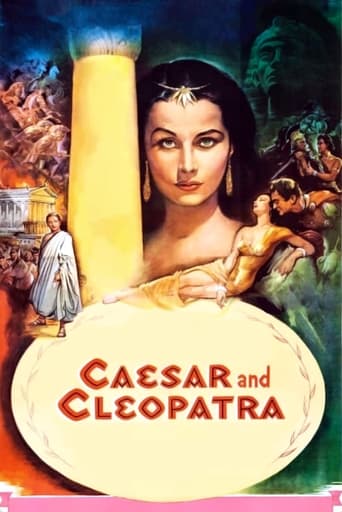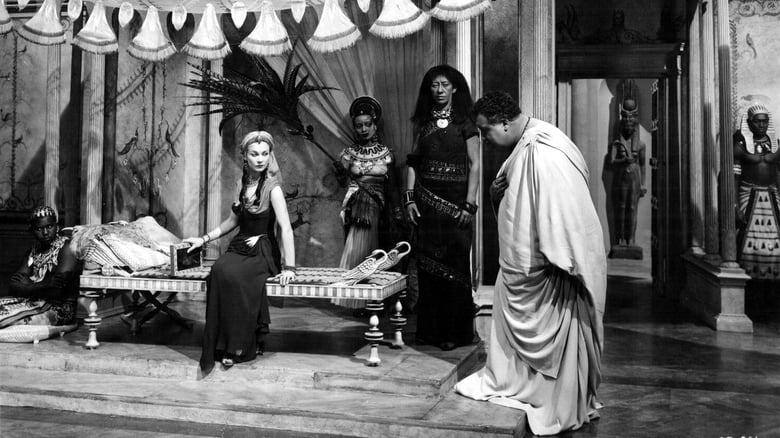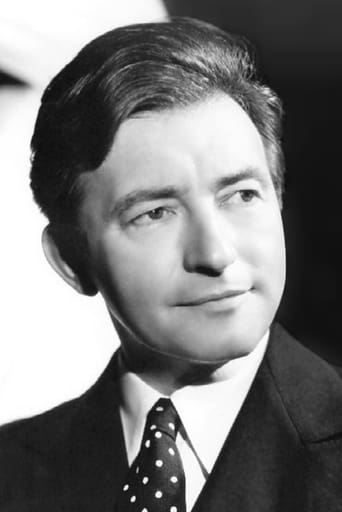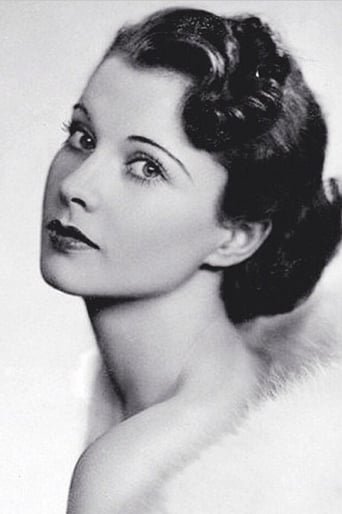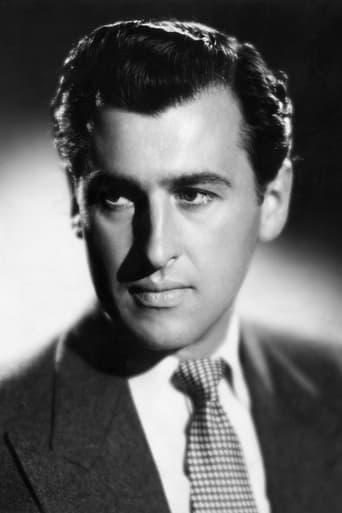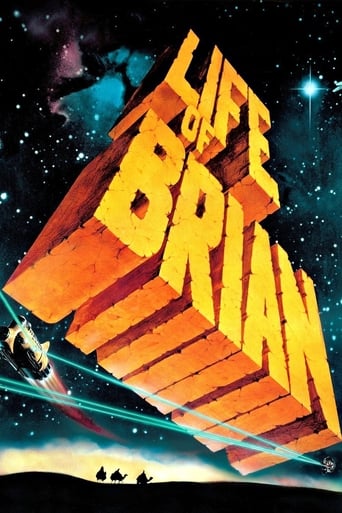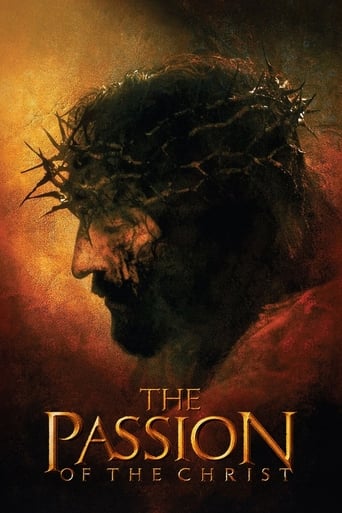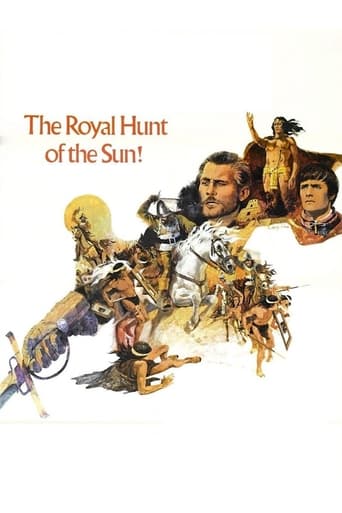Caesar and Cleopatra (1946)
The aging Caesar finds himself intrigued by the young Egyptian queen. Adapted by George Bernard Shaw from his own play.
Watch Trailer
Free Trial Channels
Cast


Similar titles
Reviews
Self-important, over-dramatic, uninspired.
n my opinion it was a great movie with some interesting elements, even though having some plot holes and the ending probably was just too messy and crammed together, but still fun to watch and not your casual movie that is similar to all other ones.
It's a mild crowd pleaser for people who are exhausted by blockbusters.
The movie is wonderful and true, an act of love in all its contradictions and complexity
When this film was recently shown on British television I recorded it on the rather naïve assumption that it would be a grand epic of Classical antiquity, something along the lines of the famously expensive Elizabeth Taylor "Cleopatra", still often cited as the costliest film ever made when values are adjusted for inflation. Of course, "Caesar and Cleopatra" is nothing of the sort; the British cinema never really had the budget to copy Hollywood in this respect although some European film-makers, especially in Italy, certainly tried to.The film was certainly expensive by the standards of 1945; indeed, it was reported to be the most expensive film ever made in Britain at that date, costing well over a million pounds. It is not, however, a Hollywood-style epic but a cinematic adaptation of the play by George Bernard Shaw. While in the Egyptian capital city of Alexandria, Julius Caesar becomes involved in a power-struggle between Queen Cleopatra and the backers of her younger brother (and husband) Ptolemy. In real life Caesar and Cleopatra were lovers, but here their relationship is portrayed not as a romantic or a sexual one. The middle-aged Caesar is shown more as a father-figure to the youthful Cleopatra, a mentor who tutors her in the arts of politics and government. (And, given the intrigue-ridden nature of the Egyptian court, these are certainly areas where she could do with a little tuition).Towards the end of his long life- this film was made five years before his death- Shaw was a revered figure of English literature, regarded as the nearest thing the twentieth century had produced to a Shakespeare. In more recent years this reputation has faded somewhat, partly because his plays are not always very dramatic. He can be stronger on philosophy and political theory than on action or dramatic tension, and even though his contributions to political and philosophical debates are often expressed in witty and vivid dialogue, the reader (and to an even greater extent the theatre-goer) is sometimes left with the impression that Shaw's linguistic gifts might have been better employed in penning political tracts than in writing for the stage.Nevertheless, some of Shaw's plays have been turned into very good films, notably the 1938 "Pygmalion" with Leslie Howard and Wendy Hiller, or the 1941 "Major Barbara", also with Hiller and Robert Morley. (One could also include "My Fair Lady" in this list, but that is really second-hand Shaw, a musical based upon "Pygmalion" which owes much of its success to its songs). There have, unfortunately, also been a number of failures, such as "The Millionairess", which relied too heavily on Sophia Loren's glamour and the comic talents of Peter Sellers (which were not too much in evidence) and, although supposedly a comedy, ended up about as funny as a two-hour speech at a TUC conference."Caesar and Cleopatra" must also rank among the less successful Shaw adaptations. A lot of its million-pound-plus budget seems to have been spent on its lavish sets- economic and political considerations in 1945 precluded location shooting in Egypt itself- but from a modern perspective they seem like part of the problem, giving the whole production a very artificial, stagey look. It is said that the director Gabriel Pascal ordered sand from Egypt to get the colour right, but when everything else looks so artificial a gesture like that seems like an unnecessary luxury. The stagey impression is strengthened by the dialogue, both in the unnatural way it is spoken and, at times, in the way it is written. (Shaw could sometimes succumb to the delusion that if he was the twentieth-century Shakespeare it was incumbent on him to write in the style of his august predecessor, particularly when dealing with historical subjects).The best acting performance comes from Claude Rains as Caesar. (I normally think of Rains as a supporting actor in roles like his French police chief in "Casablanca", so it was nice to see him in a leading role for once). This is not the Caesar of history, who was doubtless a lot more ruthless than he is portrayed here, but it is Caesar as Shaw wrote him, an essentially decent man whose undoubted sense of Realpolitik is tempered by his instincts towards humanity and clemency.Vivien Leigh, however, is well below her best here. She may have been one of Britain's leading actresses of the period, but seems quite wrong for the part. She was 32 at the time, and never seems convincing as Cleopatra, whom Shaw envisaged as a kittenish teenager. A thirty-something Cleopatra would not, I am sure, have required any lessons from Caesar in statecraft.Of the supporting cast, the best is Francis L. Sullivan as Ptolemy's wily and ambitious tutor Pothinus. The young Stewart Granger seems to have wandered in from another film, possibly one of the swashbuckling historical adventures which were later to become his stock-in-trade. Flora Robson has a thankless task as Cleopatra's nurse Ftatateeta, a character seemingly invented for the sole purpose of raising a laugh every time one of the other characters mispronounces her absurd name. Cecil Parker specialised in playing upper-middle-class English gentlemen and here he plays Caesar's slave Britannus as an upper-middle-class English gentleman transported back in time to Ancient Egypt, something which is never remotely convincing.The film was described at the time as a "box office stinker"; evidently British audiences in the last year of the Second World War wanted something a bit more entertaining and uplifting than this wordy, overlong disquisition on the nature of political power. Some films which were "stinkers" when they first came out have gone on to become classics, but "Caesar and Cleopatra" seems to have gone in the opposite direction; today it is a little-known, rarely-seen curiosity. 5/10
Beautiful young Egyptian queen Vivien Leigh (as Cleopatra) meets powerful old Roman emperor Claude Rains (Julius Caesar) and, as they say, the rest is history. Produced and directed by Gabriel Pascal, this adaptation of George Bernard Shaw's play loses nearly all of its verbal luster in an overblown production. It does look nice, with Technicolor photography and well-constructed sets. The epic opulence doesn't match the stagy direction and performances, however. The co-stars have little screen chemistry and Ms. Leigh flitters around the sound-stages like a scatter-brained Scarlett O'Hara played by Billie Burke. Next to Leigh and Mr. Rains, Stewart Granger looks healthy, at least. Pretty, harp-playing Jean Simmons took notice. The hours are sometimes filled with people standing around waiting for things to happen, and they do, intermittently.**** Caesar and Cleopatra (12/11/45) Gabriel Pascal ~ Vivien Leigh, Claude Rains, Stewart Granger, Flora Robson
I am curious about this film's credits listing 4 cinematographers...and not just any...Cardiff,Young,Krasker and Hildyard...big names that I recognize. Why would a single film need 4 main cinematographers? They are not (like other films) credited as 2nd unit and then one main person getting the chief DOP credit. So does anyone know why this film needed 4? Was there a succession of firings/or quittings and they needed to sub in another (and another etc.)? If not, how can 4 work simultaneously on one film?..one would think with 4, there would be a lot of on-screen noticeable discrepancies of styles etc. My untrained eye couldn't detect.
The first few minutes are dry and dull but suddenly the sun comes out with the appearance of Leigh. Granted, I'm infatuated with her but I don't think anyone else could deny the sparkle and power of her presence in this film as, though in her thirties in real life, she becomes a teenage girl just beginning to experience her sexuality and the power it has over men. In those scenes where Raines acts with her, he reflects her and shines, too, and the picture takes on a light air. And there are patches of British style humor. But in those rather long stretches where GBS indulges himself in dialogue where he fancies himself to be Shakespeare (and Shakespeare he ain't!) it is dry torture, like licking a pyramid.So watch it. To deny yourself seeing Leigh even in her few, spotty scenes of sunlight would be like denying yourself a picnic because of intermittent Raines.

